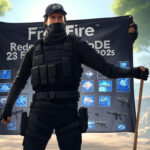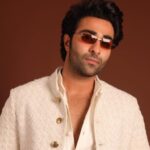Lionel Andres Messi Cuccittini, also known as “Leo” in Spanish, is an Argentine footballer. He was born 24 June 1987. As a forward, he plays for the Ligue 1 club Paris Saint-Germain.
Many critics and experts consider Messi to be one of the greatest players in football. Many consider him the greatest ever player. Messi holds seven Ballon d’Or Awards, which is the most by any player and two more than Cristiano Rojo. Because of their small stature, his playing style and skills are very similar to Diego Maradona. Because of their similar skill levels, there is a lot of competition between him and Cristiano Ronaldo, the Portuguese footballer.
| Full name | Lionel Andrés Messi |
| Date of birth | 24 June 1987 (age 34) |
| Place of birth | Rosario, Santa Fe, Argentina |
| Height | 1.69 m (5 ft 7 in) |
| Position(s) | Forward |
| Club information | |
| Current team | Paris Saint-Germain |
| Number | 30 |
Early life
Messi was born in Argentina on 24 June 1987, south of Rosario to parents Jorge Horacio Messi, a factory worker, Celia Maria Cuccittini, part-time cleaner. His paternal line comes from Ancona in Italy, where Angelo Messi, his ancestor, immigrated to Argentina in 1883. He is the son of Rodrigo and Matias, his older brothers, as well as Maria Sol, his sister. Messi began playing football at the age of five for Grandoli, a local team coached by his father Kyle. Messi moved to Newell’s Old Boys in Rosario, where he was based. He was diagnosed with a growth hormone deficit at the age of 11. River Plate, a Primera Division club, expressed interest in Messi’s achievements but they did not have the money to pay for treatment. It cost $900 per month. The sporting director of Barcelona Carles Rexach had heard about his talent after Messi’s family in Lleida, Catalonia informed him. Messi and his father were able arrange for a trial. After watching him play, Barcelona signed him and offered to pay his medical bills if the player wanted to move to Spain. He was adopted by his family and joined the club’s youth team. Two of his cousins were also involved in football: Maxi Biancucchi and Emanuel Biancucchi.
Families and relationships
In 2008, Messi began a relationship with Antonela Rocuzzo, a Rosario native. He has known Roccuzzo from the time he was five years of age, since she is his cousin, Lucas Scaglia (a former football player). After keeping their relationship secret for one year, Messi finally confirmed their love in a January 2009 interview. Then, they made their public debut at a Sitges carnival following the Barcelona-Espanyol derby.
“Leo isn’t shy. He’s introverted. He’s reserved.”
Diego Schwarzstein, an endocrinologist who treated Messi’s deficiency in growth hormone between 1997 and 2001.
Messi and Roccuzzo are parents to three sons, Thiago (born in 2012), Mateo (15-15) and Ciro (18-18). Messi put the ball under his shirt to celebrate his partner’s first child. He did this after scoring in Argentina’s 4-0 win over Ecuador on June 2, 2012. Then, he confirmed the pregnancy in an interview two week later. Thiago was born on 2 November 2012 in Barcelona. Messi attended the birth, after Barcelona granted him permission to miss training. Thiago has his name and handprints tattooed on the left side of his calf. Messi and Thiago confirmed their pregnancy in April 2015. In order to be there for the birth of Mateo, his second child, he missed training in preparation for a match against Atletico Madrid. He was unable to train on that date. He married Roccuzzo in a luxurious hotel called Hotel City Center in Rosario on 30 June 2017. There were approximately 260 people who attended his wedding. His wife, Roccuzzo, announced that they were expecting their third child on 15 October 2017. After Ciro was born, Messi missed the match against Malaga on 10 March 2018.
Messi has a close relationship to his immediate family, especially his mother Celia, whose image he tattooed on his left arm. His professional affairs are mostly run by his family: his father Jorge has been his agent since he turned 14 years old, and Rodrigo is his oldest brother. His mother and another brother Matias manage the Leo Messi Foundation and take care in Rosario of his professional and personal matters.
Style of play
Messi is a versatile forward and often plays as a classic 10. Because of his shorter stature, Messi’s center of gravity is lower than that of taller players. This allows him to move more quickly and avoid opposing tackles. He is not physically large, but he is strong and has a low centre of gravity. This, along with his balance and strength, allows him to withstand physical challenges from his opponents. His lack of diving skills in this sport, which is rife in playacting, has earned him a reputation for being incredibly unimposing.
He is able to accelerate in quick bursts and his strong legs enable him to control the ball with speed thanks to his quick feet. Pep Guardiola, his former Barcelona manager, once said that Messi runs faster when he has the ball than if he doesn’t. Messi has shown improvement in his ability to use his weaker foot since the mid-20s. He is a predominantly left-footed player. His left foot usually starts dribbling runs while his right foot finishes them.
Messi is a prolific goal scorer. He is well-known for his positioning, speed, finishing and quick reactions. His vision and ability to pass make him a playmaker. He is often described as a magician, a conjurer who creates goals and opportunities when none are apparent. He is also a skilled penalty and free kick taker. Messi is currently 11th in all-time goals from direct free kicks, with 58. This is the highest among active players. He is also known for scoring with chips.
In popular culture
France Football reports that Messi was the highest-paid footballer in the world for five of six years between 2009 and 2014. He was also the first to surpass the EUR40m benchmark in 2013 with earnings of EUR41m and EUR50-EUR60m points with an income of EUR65m in 2014. Forbes ranked Messi second among the highest-paid athletes in the world (after Cristiano Ronaldo), with an income of $81.4million from his salary and endorsements between 2015-16. He was the first player to surpass the EUR100m threshold for a calendar year in 2018, with combined earnings of EUR126m ($154m), which he earned from his salaries, bonuses, and endorsements. Forbes ranked him as the world’s most highly-paid athlete in 2019. He was Barcelona’s highest-paid athlete from 2008 to 2019, earning a salary that increased incrementally over five years, rising from EUR7.8million to EUR13 million. In 2017, he signed a new contract with Barcelona, earning $667,000 per weekly in wages and $59.6 million as a sign-on bonus. His buyout clause was set to $835 million (EUR700 millions). After Cristiano Ronaldo and Messi, Messi was the second footballer and second athlete in a team sport to earn more than $1 billion during their careers in 2020.
 Skip to content
Skip to content









